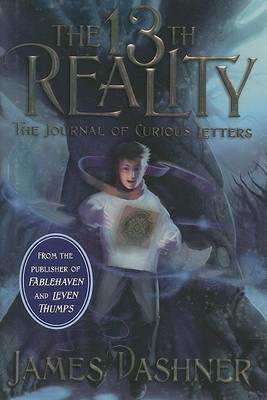
Amber (The Literary Phoenix)
Journal of Curious Letters will be available in the UK on February 8th, 2018!
This book is currently available in the US.
The potential for Journal of Curious Letters was great.
It did not follow through.
I LOVE adventure stories. I love finding clues and running about and ALL THAT hullaballoo. National Treasure? Scooby-Doo? I AM DOWN. That’s why I figured that Journal of Curious Letters would be a good fit for me. Unfortunately, it disappointed. There were a lot of things that I felt went wrong with this book, to the point where it was unenjoyable.
For starters - there were Stereotypes Galore.
I think that the best way to explain the stereotypes is to look at a handful of the characters and you can see for yourself.
First of all, we have Atticus. He’s a Caucasian American 14 y/o nerd who covers up a birthmark with a scarf because he’s embarassed. He and the librarians are friends and he regularly gets shoved into lockers. He loves science class and hangs out afterward to chill with his teacher. Who is of unspecified Asian descent.
Next we have Sofia. She’s rich, snobby, spoiled, and Italian. She has lucious long black hair and a butler who does whatever she wants. She thinks all Americans are stupid and her family owns a spaghetti and spaghetti sauce brand.
Finally, Paul. Paul is an African-American from Florida who is six feet tall at 14 y/o and has a defiant attitude. He comes in the story late and doesn’t get much representation.
Oh, almost forgot. Sato is in the end of the story. He’s Japanese, smart, untrusting, and his parents don’t really notice him. We really don’t see much of him, so there isn’t a lot to talk about.
The leader of this band, Master George, is an eccentric Englishman with a cat, Persion rugs, preposterous accent, self-importance, and a love of peppermint tea. You can practically picture him as tall, lanky, with a handlebar mustache and a top hat.
Atticus’ father is overweight, something that is repeatedly described. He’s so overweight that he gets stuck Winnie-the-Pooh style during a high action scene. This is used to humor up a scene when the characters look like they are about to die.
The author goes to GREAT trouble to show us that the tall characters are tall and weird-looking, and that the fat characters are short, fat, and weird-looking. Everybody is actually pretty mean to each other all the time about their appearances and intelligence, but they’re all such good friends that Atticus feels like crying every time he has to leave them.
Other weirdness in characters? Atticus’ 4 y/o sister is a pyromaniac, his father doesn’t like watching movies without him, and the bully looks like a Billy Goat apparently which later on in the story turns HIM into the victim. And the villain is bald and obsessed with the color yellow. At best these characters are really weird, and at worst? Well, they’re horrible.
As far as the story and writing goes, I'm not a fan.
Dashner really, REALLY likes to explain things. Everything. Too much information. So much of it is uninteresting and irrelevant to the story. Things like descriptions of Atticus’ mother’s cleaning habits and exactly how long TO THE HOUR Norbert had been working at the post office. All these descriptions felt like filler and since this book is on the longer end, I like to think a good editor would have weeded it down and gotten to the point.
There are twelve clues sent – in various, mostly pointless ways – to Atticus and the others. Mostly the clues say I CAN’T TELL YOU ANYTHING! The fact that there is twelve of them is SUPPOSED to be important, but really feels like they were there just to draw out the book. All the clues would have done better to be combined into a single, simple poem. About 75% of the book focusing on figuring out these poems and introducing Sofia, Paul, and throwing Atticus’ father Edgar in the mix. The more interesting part of the book is squished into the end and rushed.
And the dialogue? Mostly spent saying how they can’t say anything and being insulting and roundabout.
I really feel like this whole book could have been accomplished in about 125 pages and have been better for it.
This is a one star book for me.
Read this review and more like it on my blog, The Literary Phoenix.

